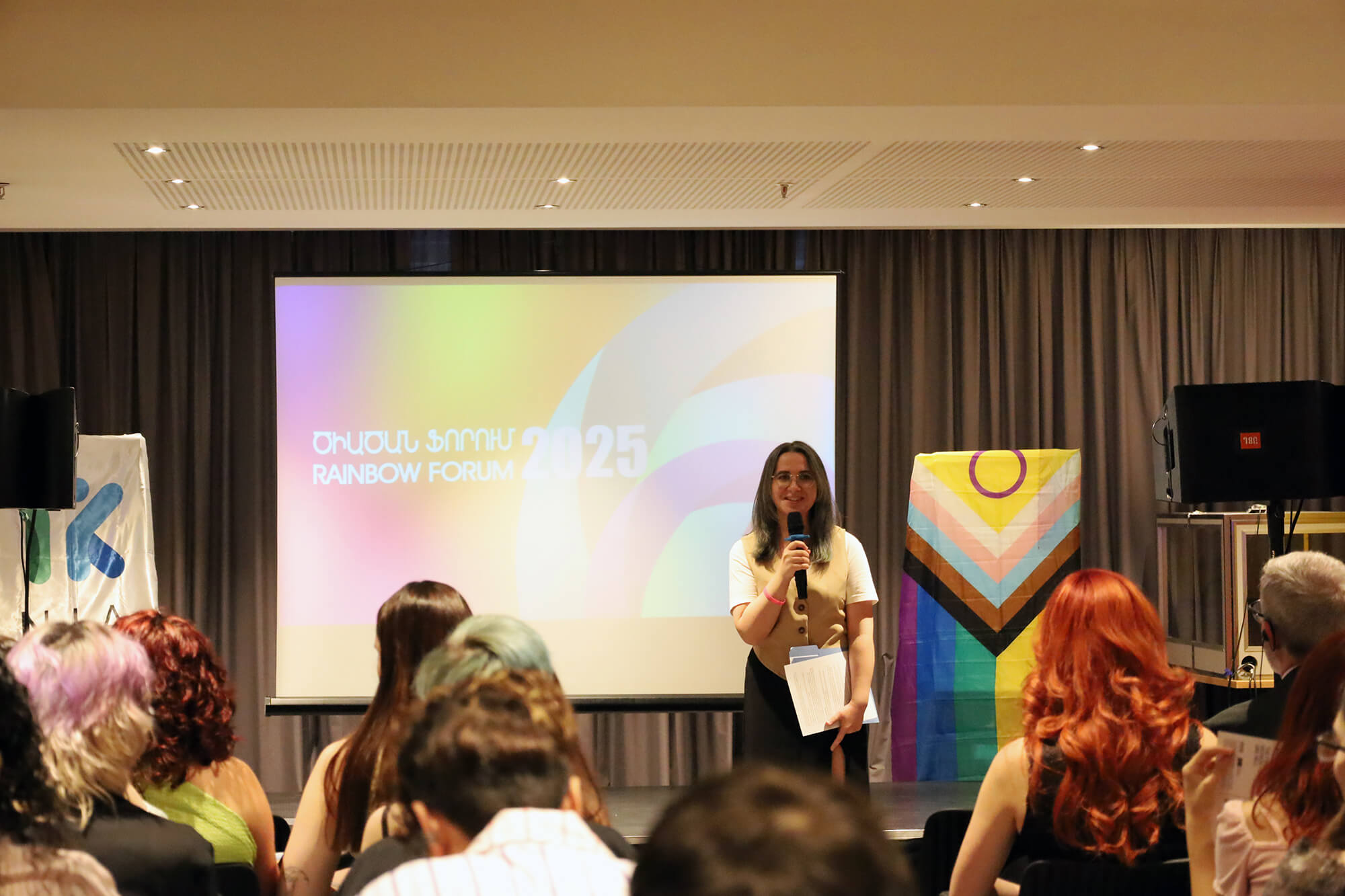Semi-annual summary of LGBT persons rights violations documented in 2024
This report briefly summarizes the human rights situation of LGBT people in the first semester of 2024, based on the analysis of violations cases and law enforcement practices recorded by the Pink Human Rights Defender NGO, as well as on the study of the progress of legislative changes.
Pink Human Rights Defender NGO documents cases of discrimination, violence, and hate speech on the grounds of sexual orientation and gender identity. It should be noted that the situation in the first half of 2024 is worrisome, as 42 cases of human rights violations in conjunction with discrimination have already been recorded, which is close to the number of cases recorded during the entire year previously.
In particular, the following were recorded:
- cases of violation of the right to be free from torture, inhuman and degrading treatment, such as cases of conversion practices,
- cases of violation of the right to respect for private and family life, which include domestic violence, cases of physical and psychological violence, dissemination of information related to private life,
- cases of violation of the right to property, such as robbery, extortion,
- violation of the right to education, which is manifested in the form of bullying by classmates or encouragement and neglect of such actions by teaching staff.
It should be noted that 29 of the documented cases are cases of domestic violence, only one of which is violence committed by a partner. In other words, as in previous years, the vast majority of offenses documented this year are cases of domestic violence. In three of these cases, the violence can be qualified as inhumane treatment, as it was manifested in the form of conversion practices aimed at changing the sexual orientation or gender identity of the person, which is assessed as severe mental suffering for the person.
In three other cases, the victims are minors and the ability to provide legal assistance by the organizations is limited due to the regulations in the law, which allow to represent the person’s interests only in case of being authorized by a legal representative or guardianship or trusteeship body. At the same time, the state has failed to protect minors in appropriate care facilities where children in difficult life situations are located. In the case of LGBT minors, in fact, these bodies not only do not provide them with proper, comprehensive socio-psychological support, but also continue to undermine their mental integrity and subject them to humiliating treatment.
On the other hand, the improper treatment towards LGBT victims of domestic violence by law enforcement agencies in practice has not yet undergone any changes. Despite the fact that investigators and police officers regularly receive training on working with victims of domestic violence, the training programs do not include topics on the specificity of working with LGBT people, as well as sensitivity and awareness raising.
As for partner abuse among same-sex couples, it is noteworthy that according to the new amendments to the law “On prevention of violence in the family, protection of persons subjected to violence in the family and the restoration of solidarity in the family”, the law should also be applied in cases of partner violence. However, distrust towards the law enforcement system among LGBT people is still a huge barrier to turn to law enforcement in such cases.
As for the practice of investigating cases, let’s first of all address the issue of submitting a report to law enforcement agencies on cases. For years, LGBT people lacked confidence towards the police and investigative system for the following reasons:
- Mocking, humiliating treatment by law enforcement bodies, victimization,
- Incomplete evaluation and qualification of the crime, not considering the hate motive of the criminal,
- Inefficiency of case investigation, unreasonable deadlines,
- Risk of dissemination of personal information.
These problems and concerns are still present during 2024. A more detailed description of the registered cases and an analysis of their progress will be found in Pink’s annual report.
In 2024, the draft anti-discrimination law, which has been discussed with few changes since 2016 was again presented to the public. At the same time, according to the action plan for 2023-2025 deriving from the Human Rights Protection national Strategy, the adoption of the law is planned for the second semester of 2024. However, it should be noted that the draft law does not include such legal instruments and mechanisms that would make it an effective measure for protection against discrimination. Thus, sexual orientation and gender identity are again not included as protected characteristics from discrimination, which implies that the question of applying the law in cases of discrimination against LGBT persons will be left to the arbitrary discretionary interpretation of the courts, which is worrying, taking into account the lack of professionalism and experience of applying human rights fundamental principles in the judicial system.
It is also problematic that the equality body that is supposed to be composed according to this law is not intended as a separate body, but should be formed under the Ombudsman, which already reduces the authority of that body and the legal force of its decisions. There is also no requirement to include persons representing different vulnerable to discrimination groups in the equality body.
The next fundamental gap in the draft law which makes it ineffective, is the question of the legal competence of public organizations. In particular, in cases of discrimination, it has been proposed many times to provide for the right to the human rights defender NGOs to bring claims to the court regarding issues of public interest, in order to ensure the effective protection of discriminated persons, even when they have indirectly become victims of discrimination and do not have sufficient awareness, legal knowledge or resources to litigate any discriminatory action, inaction, law or decision against them.
It is still too early to assess the progress of the legislative changes that have already come into force, in the sense that the evaluation of the implementation of the Criminal Code, which came into force in July 2022, will be possible to carry out comprehensively at least next year, when it will already be in effect for three years. As of now, we can note that the code is still not effectively applied in cases where the criminal act was committed because of the victim’s sexual orientation or gender identity. Pink is monitoring the practice of applying the new criminal legislation and will come up with a full assessment.




